-
About
- About Listly
- Community & Support
- Howto
- Chrome Extension
- Bookmarklet
- WordPress Plugin
- Listly Premium
- Privacy
- Terms
- DMCA Copyright
- © 2010-2025 Boomy Labs


 Matthew A. Dolman
Matthew A. Dolman
Listly by Matthew A. Dolman
The popular heartburn drug Zantac has been linked to numerous types of cancer and was removed from store shelves in April of 2020, as ordered by the FDA. My goal is to make consumers aware of the dangers associated with Zantac. Sanofi is the manufacturer of Zantac. A single Zantac tablet contains 3000 times the level of NDMA (known carcinogen) that has been deemed safe for consumption.
Zantac cancer lawsuits have been consolidated nationwide before one judge as subject to multi-district litigation (MDL) in U.S. Federal Court in the Southern District. The Dolman Law Group is presently investigating hundreds of claims that Zantac caused cancer. The Zantac cancer lawsuit is in its infancy stage and we will continue updating the public as we learn more.
The Food and Drug Adminstration (FDA) ordered Zantac to be pulled off the shelves effective April 1, 2020. An independent pharmacy named Valisure conducted perhaps the most thorough study of Zantac to date (in 2018) and determined that while the acceptable level of NDMA is 96 nanograms, a single Zantac tablet contains 300,000 nanograms of NDMA. The FDA has made the decision that Zantac simply poses too great of a danger to consumers due to the risk of cancer. Keep in mind that the CDC has determined that Zantac poses a serious danger to both humans and animals.
The use of Zantac has been linked to the following types of cancer:
-Liver cancer
-Tongue cancer
-Prostate cancer
-Esophageal cancer
-Stomach cancer
-Liver cancer
-Bladder cancer
-Kidney cancer
-Prostate cancer
-Colorectal cancer
-Breast cancer
-Pancreatic cancer
-Non hodgkin's lymphoma
-Multiple myeloma
-Islet cell tumors
-Leukemia
-Intestinal cancer
-Throat/nasal cancer
Contact me today if you have been diagnosed with any of the above types of cancer and used Zantac. Please email me at: matt@dolmanlaw.com
Learn more about Zantac and cancer
Source: https://www.dolmanlaw.com/cancer-type-zantac-cause/
![What Kind of Cancer Does Zantac Cause? [ZANTAC CANCER LAWSUIT]](http://media.list.ly/production/1099161/5157945/5157945-what-kind-of-cancer-does-zantac-cause-zantac-cancer-lawsuit_185px.jpeg?ver=0281253198)
Zantac and ranitidine are most commonly known to be harmful in the sense that they could cause cancer. If you've taken Zantac, STOP what you're doing and read this article!
Zantac is one of many medications used to decrease the symptoms of heartburn. In exchange, however, some patients might develop cancer or experience Zantac cancer symptoms. If you or loved one has already taken Zantac learn what your legal options are with an experienced product liability lawyer today.
The risk of cancer from Zantac use is simply too great to ignore. We are a law firm focused on holding manufacturers of dangerous drugs responsible for their corporate negligence. It is our earnest belief that Sanofi failed to warn consumers of the unacceptable levels of a potential human carcinogen (substance that promotes formation of cancer).
(click on this article to learn more)

Cancer-Causing carcinogens in Zantac has lead to a large scale investigation. The paramount question is when was Sanofi (manufacturer of Zantac) made aware of the presence and amount of NDMA (known carcinogen) in a single Zantac pill. A tablet of Zantac contains 3000 times the amount of NDMA that has been deemed acceptable. In fact, the FDA ordered merchants to take Zantac off their shelves. The long term use of Zantac has been linked to various types of cancer. If you or a loved one has been diagnosed with cancer after taking Zantac for a prolonged period; call us today. The Dolman Law Group is presently investigating hundreds of Zantac claims. (click on this article to learn more).

Zantac is one of many available medications used today to decrease the symptoms of heartburn....
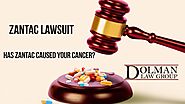
If you or a family member has taken Zantac or its generic equivalent, ranitidine (active ingredient in Zantac) and have been diagnosed with any type of cancer, watch this video and then call the mass tort lawyers at Dolman Law Group at: (727) 451-6900
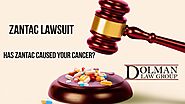
If you or a family member has taken Zantac or its generic equivalent, ranitidine (active ingredient in Zantac) and have been diagnosed with any type of cance...
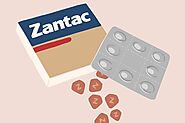
The U.S. Department of Justice is investigating whether drugmakers violated the False Claims Act by possibly failing to disclose the presence of NDMA in their Zantac and generic ranitidine heartburn products.

The FDA recalled the heartburn medication ranitidine (Zantac) due to a possible cancer risk. Doctors share the best Zantac alternatives and replacement drugs.

The maker of a generic version of ranitidine, a heartburn medication taken by millions, announced that it is recalling all of its products sold in the US because of the discovery of low levels of a probable carcinogen in these products.

Zantac and ranitidine are routinely used by millions of heartburn sufferers. So how did the drug become a cancer risk?

The heartburn drug was found to break down into a possible carcinogen in a short period of time. What did Sanofi know? Why did the FDA pull it off the shelves?
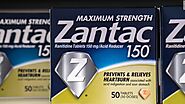
Drugmaker Sanofi is voluntarily recalling of the heartburn medication Zantac OTC. why?

Versions of the drug have been found to contain low levels of a carcinogen. But it’s still on pharmacy shelves. Here’s what you need to know.
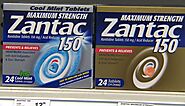
Millions of Americans who suffer from heartburn, treated it with Zantac and its generic form, Ranitidine. After a voluntary recall, those patients are forced to look elsewhere for treatment, while others are questioning if their long-term use lead to their cancer diagnosis.
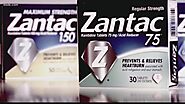
Ed Herman is here to fill us in on an announcement we may have missed regarding the dug Zantac.

On Sept. 13, 2019, the FDA warned that some ranitidine medicines, including Zantac, contain low levels of NDMA, a probable human carcinogen. What is the actual risk of using Zantac and how strong is the correlation between the use of such and the diagnosis of cancer.
The FDA made the request because these common heartburn medicines contain a compound called N-nitrosodimethylamine (NDMA), a probable carcinogen (substance that can cause cancer). The latest research results show that levels of NDMA in ranitidine medicines increase over time and when stored at higher-than-room temperature. This means that people taking the medicine may be exposed to unacceptable levels of NDMA. (click on this article to learn more)
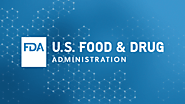
The U.S. Food and Drug Administration today announced it is requesting manufacturers withdraw all prescription and over-the-counter (OTC) ranitidine drugs from the market immediately. This is the latest step in an ongoing investigation of a contaminant known as N-Nitrosodimethylamine (NDMA) in ranitidine medications (commonly known by the brand name Zantac). The agency has determined that the impurity in some ranitidine products increases over time and when stored at higher than room temperatures and may result in consumer exposure to unacceptable levels of this impurity. As a result of this immediate market withdrawal request, ranitidine products will not be available for new or existing prescriptions or OTC use in the U.S.
(click on this article to learn more)
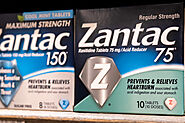
Zantac lawsuit attorney Mick Grewal discusses research related to ranitidine products and cancer.
Ranitidine heartburn medications, sold under trade names such as Zantac,

Heat is the culprit causing carcinogenic NDMA contamination in Zantac, according to recent testing by Emery Pharma. A citizen petition requesting a total suspension of ranitidine products has been submitted to the FDA. (click on this article to learn more)

Last April 01, 2020, the U.S. Food and Drug Administration (FDA) issued an order to all manufacturers of ranitidine drugs, sold under the name Zantac, to recall the products from the shelves. This was due to the presence of a contaminant known as N-Nitrosodimethylamine (NDMA), a substance that has been linked with cancer. This contaminant can build up in the drug when stored for long periods, potentially harming those who had consumed it.
Drug companies play an active role in our society for researching, discovering, and developing new drugs that could aid ailments and diseases. However, some reports show that manufacturers of Zantac and ranitidine heartburn medications were aware of the potential NDMA contamination since the 1980s. The problem lies at some companies’ fault for not indicating that Zantac has NDMA as one of its ingredients. From this, it is contestable that the manufacturer’s negligence to warn its consumers could be a ground to hold them liable.
Thousands of claimants who have developed cancer because of Zantac consumption can file a compensation claim for the harm done to them given the manufactures’ lack of responsibility and continuously selling such a dangerous product. Nevertheless, we must note that a state’s “failure to warn” lawsuits may vary from another. In some states, brand drug makers must warn generic drug users about the possible risks of the drugs they are selling and some states do not require this kind of obligation.
(click on this article to learn more)
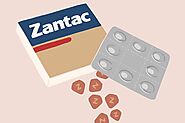
Federal investigators are probing whether two drugmakers might have known about a probable carcinogen in Zantac and a similar generic but failed to share that information with the federal government.
The U.S. Department of Justice is investigating whether Sanofi and GlaxoSmithKline violated the False Claims Act by possibly failing to disclose the presence of NDMA (n-nitrosodimethylamine) in their Zantac and generic ranitidine heartburn products, according to a Law360 report.
NDMA is classified as a “probable human carcinogen.” In April, the U.S. Food and Drug Administration requested that drug manufacturers immediately remove all prescription and over-the-counter ranitidine products from the market due to concerns the medications contained unacceptable levels of NDMA.
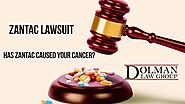
If you or a family member has taken Zantac or its generic equivalent, ranitidine (active ingredient in Zantac) and have been diagnosed with any type of cancer; call us today to learn your rights. We are investigating Zantac cancer claims nationwide. Zantac users have significant exposure to cancer. A single tablet of Ranitidine (generally Zantac) contains 3000 times the NDMA that is considered safe for consumption. Our goal is to hold Sanofi responsible for their negligence in failing to disclose how carcinogenic Zantac is. Long term use of Zantac has been tied to bladder cancer, breast cancer, non hodgkin's lymphoma, leukemia, colon cancer, colorectal cancer, testicular cancer, esophageal cancer, kidney cancer, prostate cancer and pancreatic cancer.
The Food and Drug Adminstration (FDA) ordered Zantac to be pulled off the shelves effective April 1, 2020. An independent pharmacy named Valisure conducted perhaps the most thorough study of Zantac to date (in 2018) and determined that while the acceptable level of NDMA is 96 nanograms, a single Zantac tablet contains 300,000 nanograms of NDMA. The FDA has made the decision that Zantac simply poses too great of a danger to consumers due to the risk of cancer. Keep in mind that the CDC has determined that Zantac poses a serious danger to both humans and animals.
(click on this article to learn more)
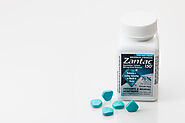
Per Roopal Luhana (Nationally recognized mass tort lawyer)
"The U.S. Judicial Panel on Multidistrict Litigation (JPML) consolidated all federally filed Zantac (ranitidine) lawsuits in the Southern District of Florida in February 2020. A few months later, District Judge Robin L. Rosenberg ordered the parties to conduct a two-stage census of all Zantac cases, including filed and unfiled claims. The census will provide data impacting future management decisions.
The judge recently released a pretrial order regarding the implementation of the census process, which sets forth procedures for addressing delinquencies or deficiencies in plaintiffs’ census forms. Subsequent orders will address additional information to be provided by the defendants.
Meanwhile, a recent study published in the Chemical and Pharmaceutical Bulletin shows that Zantac may be affected, not only high temperatures, but by the presence of oxygen and humidity. All of these conditions may increase the level of cancer-causing N-nitrosodimethylamine (NDMA) in the product.
Court Outlines Procedures for Claimants in Zantac MDL
According to the recent pretrial order signed by Judge Rosenberg, plaintiffs who filed a Zantac lawsuit before May 31, 2020, must have submitted a census form no later than July 21, 2020. Any plaintiff who did not meet that deadline may be subject to sanctions, up to and including the dismissal of the case.
In an earlier pre-trial order, the court created a registry designed to permit individuals who may have claims related to the Zantac MDL to submit those potential claims to the registry for further investigation. Any claimant who retained legal counsel on or before June 30, 2020 and who had not yet filed a Zantac lawsuit, but who sought to participate in the registry, must have also filled out a census form by August 17, 2020.
Unfortunately, there was a technology error that resulted in the loss of a substantial amount of data, so several claimants and their legal counsel must re-submit the affected forms. The court extended the deadline for the submission of the data to August 31, 2020."

The presence in Zantac of NDMA a known carcinogen has lead the FDA to recall the drug and many lawsuits to be filed against the manufacturers.
"In 2019, the FDA warned users of Zantac of potential risks that were reported by individual laboratories. They warned the public about the presence of certain carcinogens in batches of ranitidine. Walmart, Walgreens, Rite Aid, and CVS decided to remove ranitidine from their shelves following this warning. This was not an official recall, but rather a decision made by those companies on their own. Meanwhile, the FDA continued to perform tests and started an investigation into the Zantac (ranitidine) and carcinogen claims. During this investigation, they recommended Zantac users to discontinue using the drug and instead use alternative over the counter medications." - from this article

Novartis, the maker of a generic form of the popular heartburn drug Zantac, said Wednesday it will cease distribution of the medicine after investigations suggested that generic and branded versions contain a known carcinogen.
A distribution halt is not the same as a full recall, and it means that generic Zantac (ranitidine) remaining on store shelves can still be sold, CBS News reported.
The move stems from an announcement made last Friday by the U.S. Food and Drug Administration. In a statement, the agency said that a substance that could cause cancer had been found in some ranitidine heartburn and ulcer medicines, including the brand name drug Zantac, and the source of this contamination is being investigated.
(click on this learn to more)

Recently, more than 200 people joined a class-action lawsuit in South Florida against the maker of Zantac, a popular drug that contains Ranitidine, an antihistamine and antacid used to treat heartburn. The claimants allege that the makers of Zantac deceived millions of consumers into “purchasing and ingesting a defective, misbranded, adulterated and harmful drug” while failing to inform consumers that the drug contained a cancer-causing agent called N-nitrosodimethylamine, also known as NDMA.
The Zantac lawsuit followed statements and actions from the Food & Drug Administration (FDA), who tested the product for the presence of NDMA, as well as a voluntary recall of the drug by its manufacturer, Sanofi, in the U.S. and Canada.
(click on this article to learn more about the Zantac cancer lawsuit)

Clearwater injury attorney Matthew Dolman, is a highly regarded advocate for injury victims. He was selected by his colleagues as a Florida Superlawyer published by Thompson Reuters. Matthew is a lifetime member of the Million Dollar Advocates Forum and the Multi-Million Dollar Advocates Forum.
Matthew handles personal injury claims throughout the State of Florida.